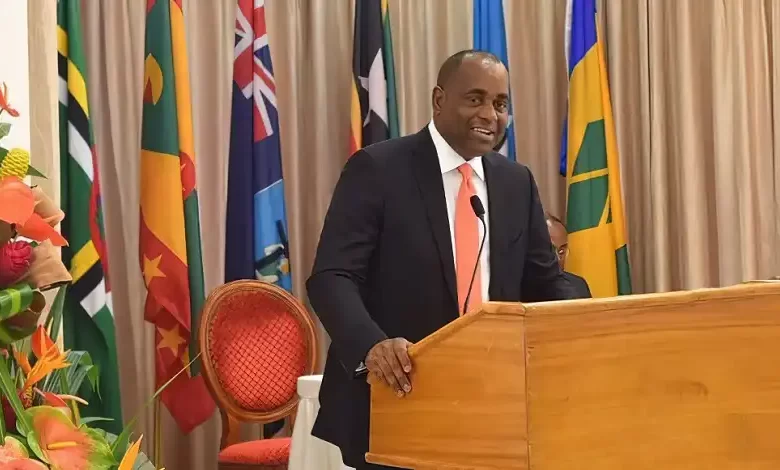Prime Minister of Dominica

The Prime Minister of Dominica is the title given to the head of government in the Commonwealth of Dominica. Since the island achieved independence on November 3, 1978, the Prime Minister has played a defining role in steering the nation’s governance, economy, and international relations. Roosevelt Skerrit, Dominica’s current Prime Minister since 2004, continues to lead the country through a period of climate resilience and modernisation.
History and Establishment of the Office of the Prime Minister
The position of Prime Minister of Dominica was established with the ratification of the Constitution of Dominica, coinciding with Dominica’s independence from Britain. Patrick Roland John was sworn in as the first Prime Minister, a role that evolved from the earlier positions of Chief Minister and Premier before full sovereignty was achieved.
The Prime Minister leads the Cabinet of Dominica, commands a majority in the House of Assembly, and advises the President of Dominica on the appointment of ministers and national affairs.
Today, the Prime Minister also serves as a global representative for Dominica’s interests, playing a key role in initiatives such as the Climate Resilience and Recovery Plan (CRRP) and the National Resilience Development Strategy 2030 (NRDS).
Primary Duties and Responsibilities of the Prime Minister
The Prime Minister’s official roles encompass a range of executive, legislative, and diplomatic functions critical to national governance:
- Leading and presiding over the Cabinet of Ministers in Dominica.
- Advising the President of Dominica on ministerial appointments and parliamentary matters.
- Setting and directing national development policy and priorities.
- Representing Dominica in international organisations such as the Caribbean Community (CARICOM) and at global forums.
- Managing national emergency responses alongside agencies like the Office of Disaster Management (ODM).
- Overseeing major infrastructure projects, including the International Airport Project and digital economy initiatives like the Digital Economy Development Plan.
- Promoting programs such as the Dominica Citizenship by Investment (CBI) to attract sustainable foreign investment.
- Guiding national election processes with collaboration from the Electoral Commission of Dominica and ensuring adherence to the Dominica Electoral Process.
- Working closely with financial and planning entities like the Ministry of Finance, Economic Development, Climate Resilience and Social Security.
The Prime Minister’s portfolio is expansive, reflecting Dominica’s ambitions for resilience, modernisation, and enhanced global engagement.
Historical List of Dominica’s Prime Ministers
Since independence, Dominica has been led by several distinguished individuals who helped shape the island’s modern political and social framework.
Patrick Roland John (1978–1979)
Patrick Roland John became Dominica’s first Prime Minister, leading the island to independence but resigning amid civil unrest and accusations of misconduct.
Oliver Seraphin (1979–1980)
Oliver Seraphin served as interim leader during a transitional period marked by rebuilding after Hurricane David devastated the country.
Dame Mary Eugenia Charles (1980–1995)
Dame Mary Eugenia Charles, the Caribbean’s first female Prime Minister, stabilized democracy, enhanced the rule of law, and modernized the economy through firm leadership.
Edison Chenfil James (1995–2000)
Edison Chenfil James promoted privatization and agricultural diversification, laying the groundwork for broader economic reform during his term.
Roosevelt “Rosie” Douglas (2000)
Roosevelt Douglas served briefly but remains noted for fostering diplomatic ties and proposing greater Caribbean regional unity.
Pierre Charles (2000–2004)
Pierre Charles prioritized healthcare and education reforms but was hampered by serious health challenges that ultimately led to his untimely death.
Osborne Riviere (2004)
Francis Osborne Riviere briefly acted as interim Prime Minister, providing stability while Dominica transitioned to new leadership.
Roosevelt Skerrit (2004–Present)
Roosevelt Skerrit has led Dominica for nearly two decades, championing climate resilience, promoting sustainable tourism, and navigating recovery after disasters such as Hurricane Maria.
Prime Minister’s Role in Modern Policy and Resilience Building
Under the Prime Minister’s leadership, Dominica has embraced a forward-looking national agenda, focusing on major infrastructure projects, renewable energy initiatives, and digital economy expansion. Policies such as the Resilient Dominica Physical Plan (RDPP) seek to mitigate the risks of climate change, while international partnerships with organizations like the Caribbean Development Bank support sustainable development goals.
Electoral Framework and Democratic Governance
The Prime Minister is elected indirectly through parliamentary elections. The Electoral Office oversees elections to ensure fairness, transparency, and public trust in the process, maintaining the country’s vibrant democratic system.
National Development and Global Representation
From forging partnerships under the Commonwealth of Dominica umbrella to promoting tourism ventures through the Discover Dominica Authority, the Prime Minister represents the island’s interests regionally and internationally. Dominica’s leadership in climate resilience is now globally recognised.
Challenges and Vision for the Future
Faced with the impacts of tropical storms, global economic shifts, and growing demands for sustainability, the Prime Minister’s role remains dynamic. Projects like the Dominica Geothermal Development Project and investment in green energy initiatives reflect a vision for a future-ready economy.
Legacy of Leadership
Each Prime Minister has left a lasting impact on Dominica’s political landscape. Their tenures collectively tell the story of a resilient, independent island navigating the currents of change with courage, vision, and leadership.




